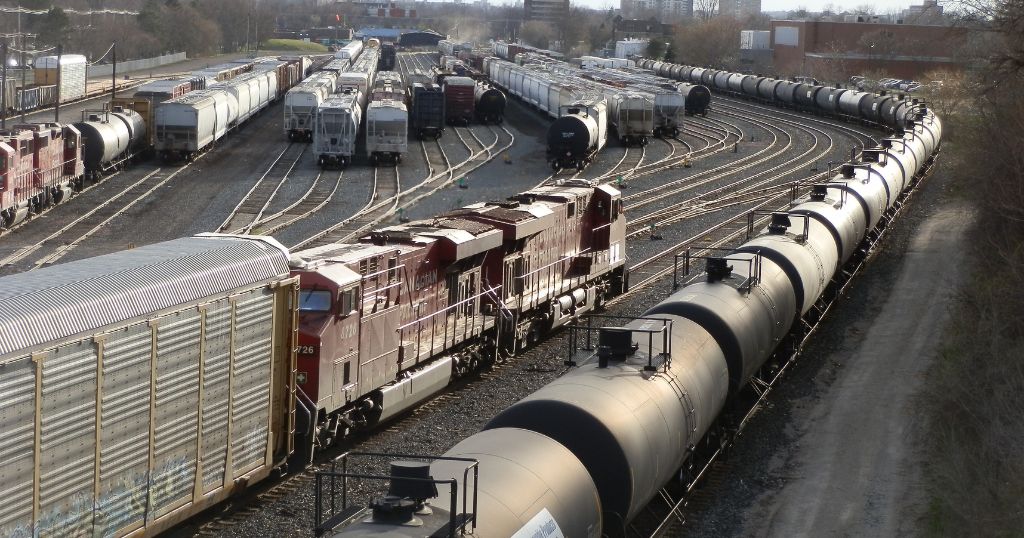The freight railroad industry reached a tentative deal with rail worker unions Thursday, September 15, morning to avoid a national rail strike that threatened to cripple the nation’s already stressed supply chain.
The tentative agreement still must be ratified in a vote of the unions’ workers.
“We are pleased to announce that the nation’s freight railroads have reached tentative agreements with the Brotherhood of Locomotive Engineers and Trainmen Division of the International Brotherhood of Teamsters; the International Association of Sheet Metal, Air, Rail and Transportation Workers – Transportation Division; and the Brotherhood of Railroad Signalmen,” the National Carriers’ Conference Committee (NCCC), which represents the nation’s freight railroads in national collective bargaining, said in a news release.
“Together, the three unions represent approximately 60,000 railroad employees,” it added.
A strike had been planned for 12:01 a.m. on Friday.
A report from the Association of American Railroads said that the potential shutdown would cost $2 billion per day and “would immediately harm every economic sector served by rail.” The group said 7,000 trains per day would be affected and would “trigger retail product shortages, widespread manufacturing shutdowns, job losses and disruptions to hundreds of thousands of passenger rail customers.”
Currently, rail moves about 28% of U.S. freight, which means trucks would have to pick up the slack, which the trucking industry said it would not be able to handle. Union leaders were haggling over time off, pay raises and bonuses as several industries watched closely, fearing the worst.
“I thank the unions and rail companies for negotiating in good faith and reaching a tentative agreement that will keep our critical rail system working and avoid disruption of our economy,” President Joe Biden said in a statement.
The NCC said the tentative agreement includes “a 24 percent wage increase during the five-year period from 2020 through 2024 – with a 14.1 percent wage increase effective immediately – and five annual $1,000 lump sum payments.”
National Retail Federation President and CEO Matthew Shay said in a statement the industry was “relieved and cautiously optimistic” that a strike was averted.
“We hope railway workers will accept the new terms of the proposed contract and the railway system can continue to operate on behalf of the millions of hardworking Americans who rely on it for their jobs and the economic security of our country,” Shay added.
The rail industry and rail unions have been in contract talks since 2019. In July, Biden appointed a Presidential Emergency Board to investigate and make recommendations. The NCCC said the tentative deal includes many of those recommendations.
Under the Railway Labor Act, Congress has stepped in and stopped rail disruptions at least 18 times in the past.
This article originally appeared on The Center Square






